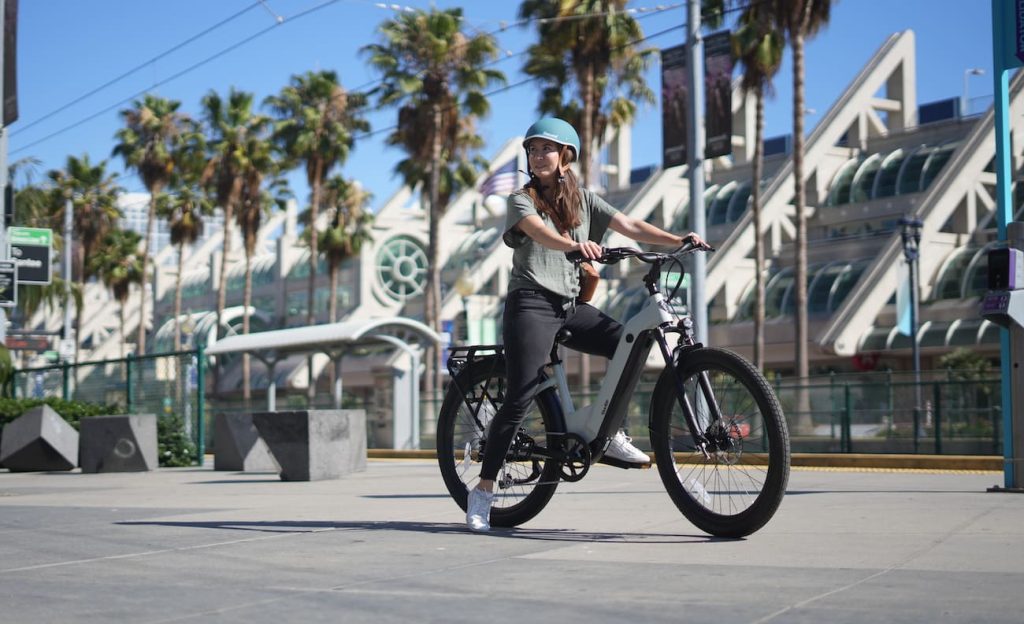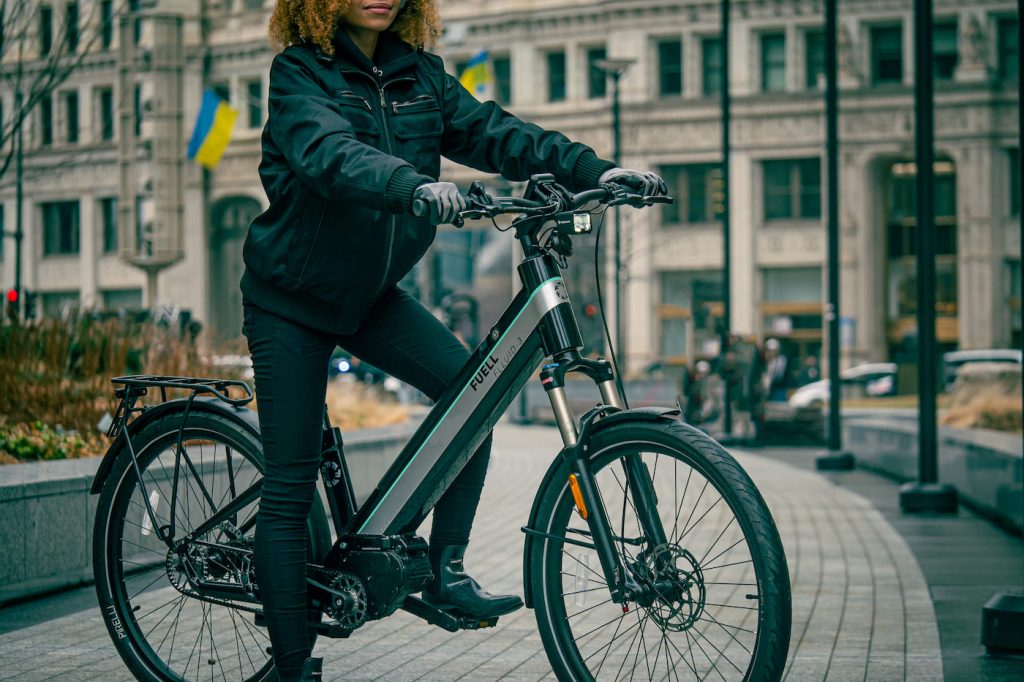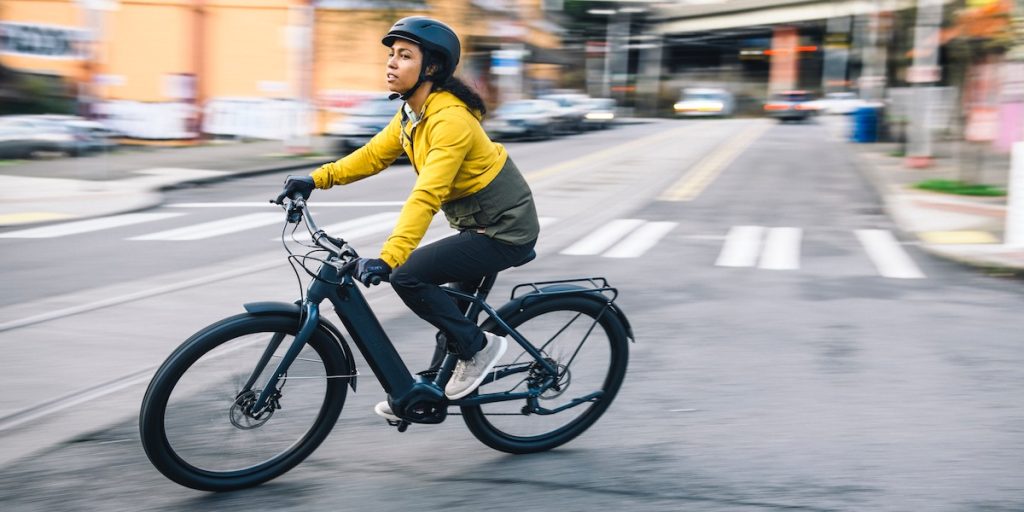
Students around the US are now heading back to college, but there’s one thing many of them won’t be able to bring with them: electric bikes and e-scooters. Several campuses are joining a growing movement in higher education, banning these efficient transportation alternatives.
Electric bicycles, which are similar to pedal bicycles with an additional small battery and motor, have proven to be an incredibly popular choice for university students navigating campuses and college towns.
They’re easier to ride than a pedal bicycle, don’t require arriving to class sweaty, and are also much less expensive than owning a car. Other advantages such as free parking and minimal upkeep also make them ideal for students.
E-bikes, which usually cost between $1,000- $4,000, are fairly expensive compared to pedal bikes, and thus many students keep them in their dorm room or apartment to prevent theft.
But many colleges are starting to ban these popular and environmentally-friendly forms of transportation, either from being kept in dorm rooms or from being used anywhere on campus. So far we’ve seen two main reasons for these bans, both of which are claimed to be rooted in safety.

Fires and collisions
The two main issues at the heart of the debate around e-bikes and e-scooters on campuses relate to fire safety and collisions with pedestrians.
E-bike fires have grabbed headlines over the last year. There have been several deadly apartment fires in NYC that have been traced back to e-bike battery fires started during overnight charging.
While e-bike fires are incredibly rare (every day millions of e-bikes are charged without a fire), the small yet growing number of examples from cheaply-made electric bikes underscores that the issue can still prove lethal.
E-bike riders that flout traffic rules or ride aggressively on sidewalks around pedestrians have also lead to an increasing number of collisions, often injuring pedestrians. The problem can be exacerbated on college campuses that have a large number of students, meaning a penchant for riskier riding in an area with more pedestrians on their phones and oblivious to their surroundings.
Those two issues, fire safety and pedestrian injuries, are commonly cited among a growing number of universities telling students not to bring e-bikes and e-scooters to campus.

Boston College administrators sent a letter out to students earlier this year citing both examples in their campus scooter ban:
“In recent weeks, Boston College administrators have become increasingly concerned about the use of e-scooters and other electric transportation devices on campus, especially in regard to the health and personal safety of riders, pedestrians, and building occupant. Many faculty, staff, and students have reported near-collisions and limited access to facilities because of scooters, and recharging lithium batteries in such vehicles has resulted in numerous fires around the United States. Additionally, a number of BC students have suffered injuries from e-scooter falls, and such accidents have caused serious injuries on college campuses across the country.”
Fordham University, in New York City, banned any transportation device powered by a battery.
San Diego State University instituted a similar ban on battery-powered personal transportation devices, though reversed the decision after significant backlash.
Some campuses haven’t banned e-bikes outright, but won’t allow students to store them on campus, which often becomes a de facto ban.
Yale University recently sent out an email to all students announcing a new policy banning e-bikes both in on-campus housing as well as in the courtyards of buildings.

Electrek’s Take
I think these kind of heavy-handed regulations and blanket bans are an overreaction, doing more harm than good.
I could spend all day linking studies that show the tremendous benefits of e-bikes. Want to get to class faster, save money on public transportation and avoid rounding out with the freshmen fifteen all at the same time? Use an electric bike!
I know that when I was in college, there were times when I couldn’t physically get from one class to another in time due to the distance. I had two classes a half mile apart with ten minutes to get there. While that’s runnable, doing so with all your books and then navigating campus buildings makes it all but impossible. With an e-bike though, it’d be a snap. And that’s one of the many reasons that so many students turn to e-bikes. It’s the reason I did. This was back in 2009, and the next year I became the first person on campus with an e-bike. Hell, I was probably the first person in the city with an e-bike. So I’m not talking theoretically here – I’ve been in the student trenches and I know what a difference having an e-bike on campus makes for personal mobility. And it’s not just about getting to class on time. Getting around the city when you don’t own a car can be tough, but an e-bike makes it both easy and enjoyable.
I don’t mean to make light of the real safety concerns, but I think there is room for balanced solutions. Campuses can mandate that only UL-listed e-bikes are allowed on campus. The number of e-bikes fitting that list is growing every day. It’s easy to require students to show up at a campus office with their ride and get a sticker for it. No parking sticker? Don’t bring your non-UL-listed e-bike to campus.
For hooligan riding, just fine the hell out of them. College students are broke. I remember buying the $4.90 pizza that tasted like crap because the $5.00 halfway decent pizza across the street was more expensive. Put the fear of fines into students. Getting caught riding on sidewalks or riding recklessly can be policed into a manageable situation. Hell, put a bounty on it. Let students take pictures of someone riding recklessly and text it to campus police (who, let’s face it, usually aren’t overburdened with solving the case of the century most of the time). A $20 gift card to the campus bookstore is a small price to pay to cut down on the few bad apples that ruin it for all the responsible students just trying to mind their own business and ride safely to class.
In summary: stop banning e-bikes. Just incentivize safe, responsible e-bike use and punish rule breaking. That’s how society works. Why not start college students on it a few years earlier?
FTC: We use income earning auto affiliate links. More.

